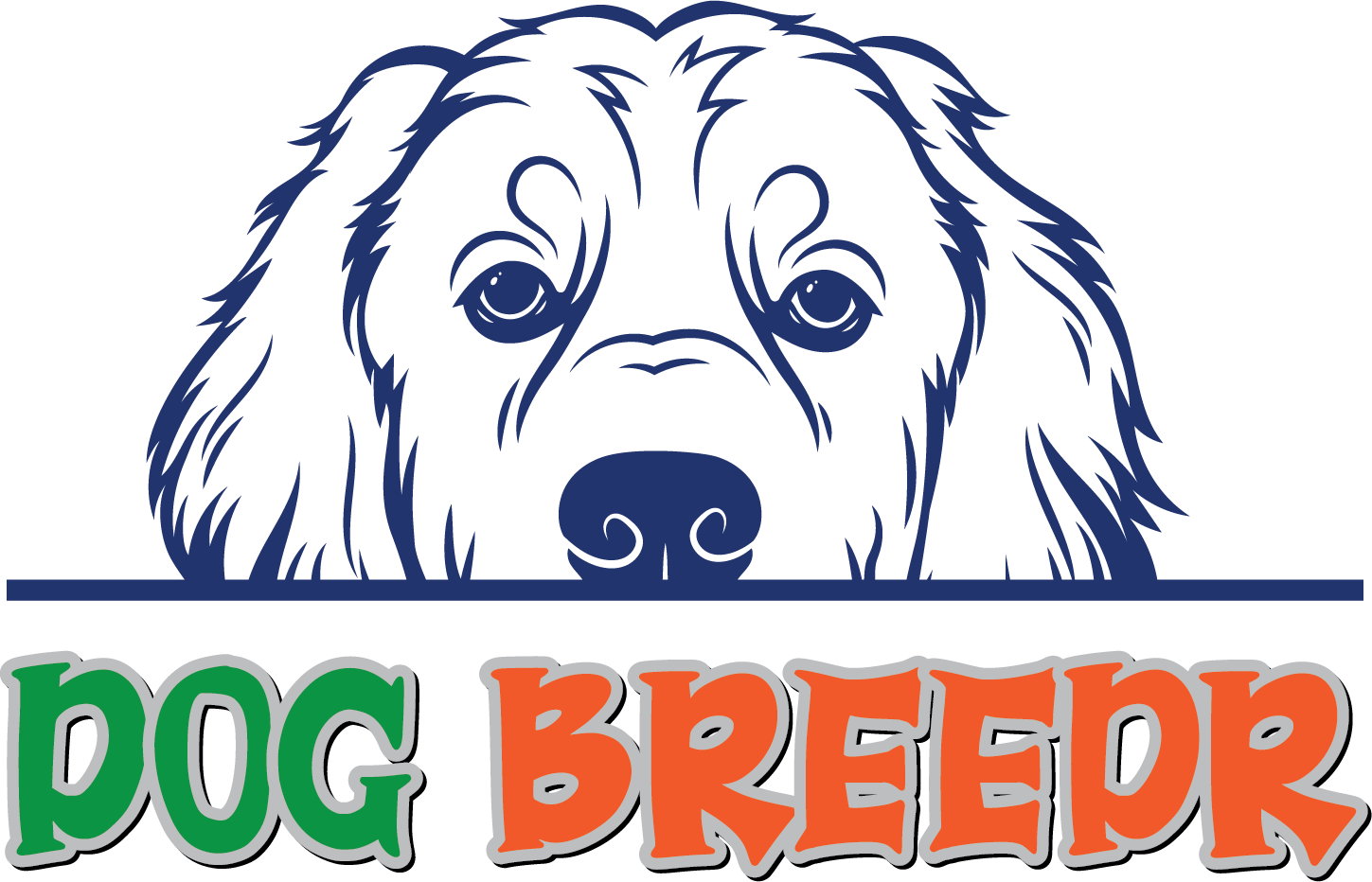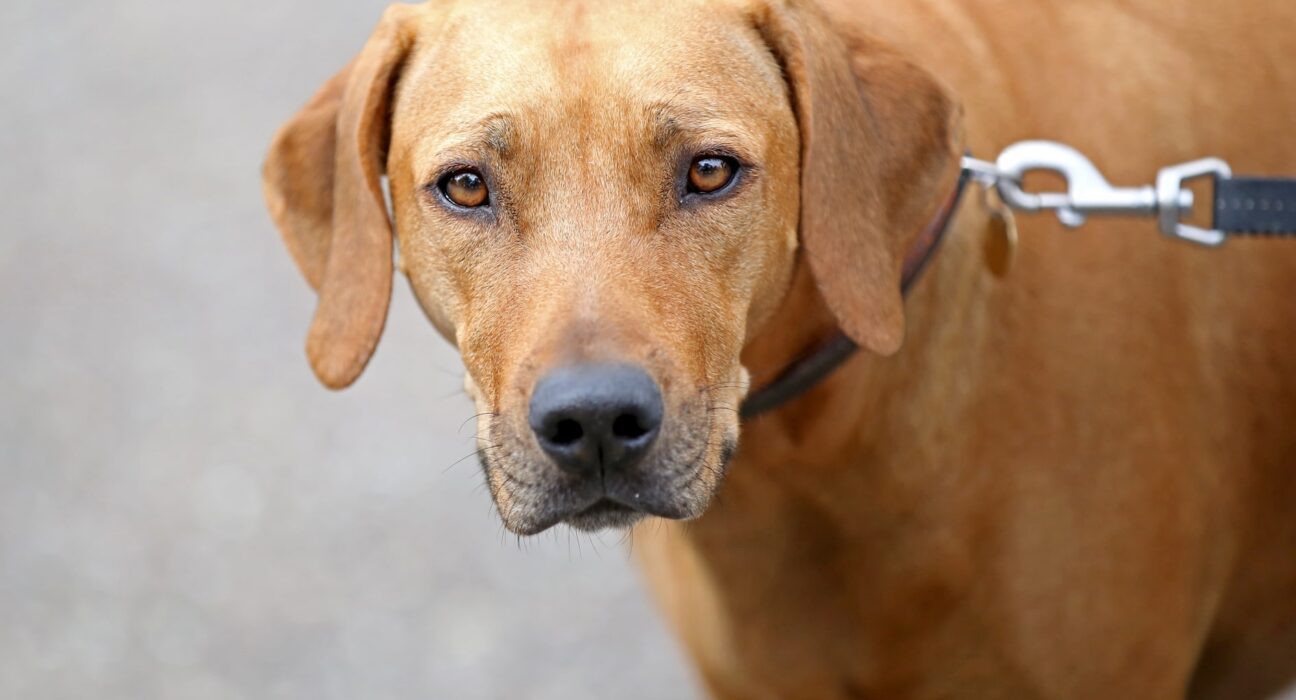The Rhodesian Ridgeback is a noble and dignified canine breed with an impressive history. This muscular, medium-sized hound originated in South Africa in the early 1800s and was initially bred by European settlers as a versatile hunting dog. These dogs were used for hunting lions and other big game animals such as leopards and antelopes.
Today, the Rhodesian Ridgeback retains its natural athleticism and bravery while being a loving family companion.
They are loyal and obedient and make good watchdogs due to their deep bark, which can deter potential intruders. This breed is affectionate towards family members but tends to be reserved around strangers.
Appearance And Personality Of The Rhodesian Ridgeback:
Rhodesian Ridgebacks have a muscular and athletic build with a short but glossy coat. The most distinctive feature of this breed is their ridge, a strip of hair running down the spine that runs in the opposite direction to the rest of the coat.
This ridge usually forms when the puppy fur grows, as it grows outwards instead of downwards like other breeds. They come in shades of tan and red and black or brindle coats.
Rhodesian Ridgebacks typically weigh between 79-90 pounds (36-41kg) and measure 24-27 inches (63-69cm) from paw to shoulder. Males are generally larger than females.
Rhodesian Ridgeback Temperament:
Rhodesian Ridgebacks are intelligent, loyal, and affectionate dogs. They are usually gentle and loyal to their family members but can be aloof or even aggressive towards strangers if not properly socialized from a young age.
Rhodesian Ridgebacks require plenty of exercises and mental stimulation to remain happy and healthy. If given enough exercise, these dogs are generally docile at home.
They make good watchdogs with a deep bark that is used to deter potential intruders. This breed is also entirely independent, so they may need additional training and guidance to stay obedient.
How To Care For A Rhodesian Ridgeback
The Rhodesian Ridgeback is a strong, loyal, active breed of dog that needs lots of exercise and attention from its owner. This breed can be a great companion for many years with proper care and training.
- Exercise: The Ridgeback needs at least an hour of activity each day to stay healthy and fit. This includes activities like running, playing fetch, or going for walks on a leash.
Regular physical activity is essential for their well-being as it helps maintain their muscle tone and prevents boredom which could lead to destructive behaviors.
- Grooming: A weekly brushing session is needed to keep the Rhodesian Ridgeback looking its best. They shed only a moderate amount, so their coat will not require extensive grooming.
Checking for fleas and ticks is essential as part of the grooming routine. If mats or tangles appear in the fur, they should be quickly removed with a comb before they worsen.
- Nutrition: An adult Rhodesian Ridgeback should eat approximately three cups of high-quality dry dog food daily, spread out into two meals. Puppies may need to eat more often during the day due to their fast growth rate.
This breed requires plenty of protein from sources like chicken and fish to stay healthy and happy regardless of age.
- Training: Start training your Ridgeback pup early to learn the basics, like proper manners, not jumping on people, and walking correctly on a leash.
They are intelligent and have a good memory, so they can quickly pick up commands. Positive reinforcement works best with this breed, as harsh punishments can lead to mistrust.
- Socialization: Your Ridgeback must have plenty of opportunities to interact with other dogs and people to prevent them from becoming fearful or aggressive.
Taking your pup to puppy classes is an excellent way to learn how to play appropriately with other animals and receive socialization from humans in an open and positive environment.
Taking care of a Rhodesian Ridgeback is no small task. Still, you’ll have a loyal friend for life by providing the dog with regular exercise, proper nutrition, and plenty of socialization opportunities.
With the right amount of love and care, this breed can live up to its reputation as an affectionate, easy-going pup.
Some Common Health Problems With Rhodesian Ridgebacks
- Dysplasia
Dysplasia is a common health problem among Rhodesian Ridgebacks, which can affect the hips or elbows of an affected dog.
This condition is caused by the abnormal development of joint cartilage and can cause discomfort, lameness, pain and arthritis in an affected dog.
Diagnosis typically involves radiographs or X-rays to assess if the hip/elbow joints are developing abnormally.
Treatment may include supplements to reduce inflammation and improve joint mobility, physical therapy, surgery or medication to help manage symptoms.
- Thyroiditis
Thyroiditis is another common disorder that affects Rhodesian Ridgebacks. It occurs when the thyroid gland becomes inflamed, leading to imbalances in hormones that regulate metabolism and energy levels.
Symptoms include weight gain, fatigue, skin problems and reduced activity. Diagnosis is based on test results from a blood sample to check thyroid hormone levels.
Treatment may include medications such as synthetic hormones that replace the ones not being produced by the body or natural supplements to support the functioning of the thyroid gland.
- Deafness
Deafness can also be seen in some Rhodesian Ridgebacks. This condition is caused by genetic defects and is usually present from birth or later in life due to age-related changes in hearing.
Symptoms vary depending on the severity and may include difficulty with communication, balance disturbances and learning challenges.
Diagnosis typically involves a physical exam and an auditory brainstem response (ABR) test, which measures nerve responses to sound waves.
Treatment usually involves teaching sign language to a deaf dog or providing hearing aids for those with residual hearing.
- Dermoid
Dermoid is another health problem that can affect Rhodesian Ridgebacks. They are benign eyelid tumours and contain hair, sweat glands and sebaceous material.
They typically appear as small bumps on the skin or protruding masses from the eyelids. Diagnosis is based on physical examination; sometimes, a biopsy may be done to determine whether the tumour is cancerous.
Treatment usually involves surgically removing the dermoid, so it does not cause discomfort or interfere with vision in an affected dog.
To help ensure the health and well-being of your Rhodesian Ridgeback, it is essential to have regular checkups with your vet and be aware of the symptoms associated with common health problems.
If you suspect that your dog may have any of these issues, it is best to seek professional advice as soon as possible so that he can receive the proper treatment.
Making sure your pup gets plenty of exercise, healthy food, and lots of love will also go a long way toward keeping him happy and healthy for years to come.
Conclusion
Rhodesian Ridgebacks are beautiful, loyal dogs that make great companions when given enough love and care. Regular exercise, proper nutrition, and socialization opportunities will help ensure a happy pup for life.
It is essential to be aware of common health issues associated with this breed so they can be diagnosed and treated as soon as possible. With the proper attention and care, your Rhodesian Ridgeback can live a long, healthy life.
So if you’re looking for an active and loving canine friend, the Rhodesian Ridgeback may be the perfect choice for your family.

